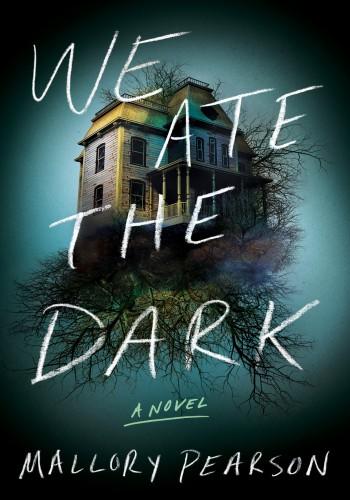Random
documents with unrelated content Scribd suggests to you:
“Absurd!” was Baron’s comment.
“Well, I don’t know. You pretty near know without any badges. You can tell the—the mixers, and the highbrows. I mean when they are the real thing—people worth while. I would know you for a mixer easy enough. I don’t mean careless, you know; but willing to loosen up a little if people went at you in the right way. And Flora would be a mixer, too—a nice, friendly mixer, as long as people behaved.” Here she turned with a heroic, friendly appeal to Mrs. Baron. “And Mrs. Baron would be one of the fine, sure-enough highbrows.”
“I think,” began Mrs. Baron, suddenly possessed of an ominous calm; but the guest made an earnest plea.
“Oh, please let me finish!” she begged.
“Very well,” said Mrs. Baron, “you may—finish.”
“You know I understand about your part in that entertainment this morning. You don’t belong in that crowd. It’s like the queen who kissed the soldier She was high enough up to do it and get away with it.” She placed her elbows on the table and beamed upon Mrs. Baron with a look so sweetly taunting, and so obviously conciliatory, that the others dared to hope the very audacity of it would succeed.
“Now don’t deny,” she continued, shaking an accusing finger at Mrs. Baron and smiling angelically, “that you’re just a nice, sure-enough, first-class highbrow!”
It was done with such innocent intention, and with so much skill, that all the members of Mrs. Baron’s family turned their faces toward her smilingly, appealingly, inquiringly.
But alas! Mrs. Baron failed to rise to the occasion. She was being ridiculed—by a child!—and her children and her husband were countenancing the outrage. Her composure vanished again.
She pushed her chair back from the table angrily. Her napkin fell to the floor; she grasped the edge of the table with both hands and stared at Bonnie May in a towering rage.
“You little wretch!” she cried. “You impudent, ungrateful little wretch! You—you brand from the burning!”
She hurried from the room. In her blind anger she bumped her shoulder against the door as she went out, the little accident robbing her exit of the last vestige of dignity.
Bonnie May was horrified, crushed. She sat, pale and appalled, her eyes fixed on the doorway through which Mrs. Baron had vanished. Then she brought her hands together sharply and uttered a single word:
“Hoo-ray!”
Every member of the family was electrified.
“Father!” expostulated Flora.
“Victor!” exclaimed the elder Baron.
And Baron, shaking his head sadly, murmured:
“Bonnie May! Bonnie May!”
she came into the house. She’s probably—rattled! How would you or I behave if we were in her shoes?”
Mrs. Baron’s eyebrows steadily mounted. “The point is, we’re not in the slightest degree responsible for her. I want to know how we’re going to get rid of her.”
Baron had taken a chair directly in front of his mother. Now he arose and paced the floor. When he spoke his tone was crisp almost to sharpness.
“It isn’t any more difficult now than it was yesterday,” he said. “I can turn her over to the police.”
Something in his manner startled his mother. She flushed quickly. “That’s just like you,” she protested. “What do you suppose people would say if we turned a motherless child over to the police? You ought to see that you’ve forced a responsibility on me!”
“Well, I should think it would be a question of what your own conscience says. As for ‘people,’ I don’t see why anybody need know anything about it.”
“And the newspapers and everything? Of course they would— everything.”
“I could ask Thornburg to take her. He offered to help. I have an idea he’d be only too glad to have her.”
“The theatre man—yes. And he’d dress her up in a fancy-ball costume, and encourage her in her brazen ways, and she’d be utterly shameless by the time she got to be a young woman.”
Baron sat down again with decision. “Mother, don’t!” he exclaimed. “Thornburg isn’t that kind at all. He’d—he’d probably try to get at her point of view now and then, and he might allow her to have certain liberties. I think he’s broad enough to want her to be good without insisting upon her being miserable!”
“Victor Baron!” warned his mother, and then she added with decision: “Then you’d better get him to take her—and the sooner the better.”
“Why should I?” demanded Thornburg bluntly He glared at Baron resentfully.
“You’re quite right, certainly. I seem to have had the impression——”
“I have an idea she’s doing better with you than she would anywhere else, anyway,” continued Thornburg in milder tones. “Why not give her her place and make her stay in it? I can’t understand a family of grown people throwing up their hands to a baby!”
“I merely wanted to get your views,” said Baron stiffly as he rose to go. “I didn’t care to send for the police until——”
Thornburg got up, too. “Don’t understand that I wash my hands of her,” he hastened to say. “It might not hurt me any for the public to know that I didn’t do anything, under the circumstances, but it would certainly be a boost for me to have it known that I went out of my way to do a good deed. Of course if you won’t keep her——”
Baron turned and looked at him and waited.
“Look here, Baron, I’m going to be frank with you. When you took her home, I was sore at you. Especially after you told me something about her I like them—children, I mean. You had taken her off my premises. I thought about the big house I’ve got, and not a child in it, and never to be, and I figured I might as well have taken her myself. But there’s difficulties.” His expression became troubled. “Once before I tried to take a child into the house and Mrs. Thornburg objected. It was my own child, too.” He paused. “You know I’ve been married twice.”
Baron’s thoughts went back a few years to the somewhat unpleasant story of Thornburg’s divorce from an actress with whom he had spent only a little more than one troubled year. The facts had been public property. He made no reply.
Thornburg continued: “I’m in doubt as to how my wife would look at it if I suggested that I’d like to bring this waif home. Of course, it’s just possible she might not want to take a child of mine, and still be willing to take in some outsider. You know what strange creatures women are.”
Baron waited. Was Thornburg being quite frank with him—at last?
“You see the difficulty. The—the wife is likely to suspect that Bonnie May is the same little girl I wanted to bring home before—that she’s mine. She never saw the little daughter. I’d have to be careful not to make her suspicious.”
“But the circumstances ... I don’t see how she could suspect anything,” argued Baron.
“Not if I don’t seem too much interested. That’s the point. I’ll tell you, Baron—you come out and see us. Me and my wife. Come to-night. State the case to us together. Tell the plain truth. Explain how you got hold of Bonnie May, and tell my wife your people have changed their minds. That ought to make the thing clear enough.”
Baron, homeward bound, marvelled at Thornburg. It seemed strange that a crude, strong man should feel obliged to shape his deeds to please an ungracious, suspicious wife. He felt sorry for him, too. He seemed to be one of those blunderers whose dealings with women are always bewildering, haphazard experiments.
He had promised to call that evening—to lend his aid to the manager. It was the sensible thing to do, of course. They had to get rid of Bonnie May. Nothing was to be gained by debating that point any further. And yet....
When he reached home he was hoping that his mother might, on some ground or other, have changed her mind.
He speedily learned that she had done nothing of the kind.
Indeed, matters were a little more at cross-purposes than they had been the night before. Mrs. Baron had tried again to make a dress for the fastidious guest, accepting certain of Flora’s suggestions, and the result of the experiment hadn’t been at all gratifying.
Baron received the first report of the matter from Bonnie May, who was waiting for him at the foot of the stairs when he entered the house.
“You will please make no unkind remarks about my new dress,” she began, assuming the attitude of a fencer, and slowly turning around.
HOW A CONVEYANCE CAME FOR BONNIE MAY
—AND HOW IT WENT AWAY
T��� to his promise, Baron set aside that evening to call on the Thornburgs.
As he emerged from the vestibule and stood for a moment on the top step he noted that the familiar conflict between the departing daylight and the long files of street-lamps up and down the avenue was being waged. In the country, no doubt, this hour would be regarded as a part of the day; but in the city it was being drawn ruthlessly into the maw of night. There was never any twilight on the avenue.
Already countless thousands of people had had dinner, and were thronging the avenue in that restless march which is called the pursuit of pleasure.
He slipped into the human current and disappeared just a moment too soon to observe that an automobile swerved out from its course and drew up in front of the mansion.
A youthful-looking old lady with snowy hair and with small, neatly gloved hands, pushed open the door and emerged. With the manner of one who repeats a request she paused and turned.
“Do come in, Colonel,” she called into the shadowy recesses of the car.
A gray, imposing-appearing man with a good deal of vitality still showing in his eyes and complexion smiled back at her inscrutably.
“Go on,” he said, tucking his cigar beneath the grizzled stubble on his upper lip, and bringing his hand down with a large gesture of leisurely contentment. “You’ll be all right. I don’t mind waiting.”
And Mrs. Harrod proceeded alone to make her call.
smiling with an odd sort of tenderness.
“Who are you?” asked the visitor. Her eyes were beaming; the curve of her lips was like a declaration of love.
“I’m Bonnie May.” The child advanced and held out her hand.
Mrs. Harrod pondered. “You’re not a—relative?”
“Oh, no. A—guest, I think. Nothing more than that.”
Mrs. Harrod drew a chair toward her without removing her eyes from the child’s face. “Do sit down a minute and talk to me,” she said. “We can let Mrs. Baron know afterward. A guest? But you don’t visit here often?”
“This is my first visit. You see, I have so little time for visiting. I happen not to have any—any other engagement just now. I was very glad to come here for—for a while.”
“You haven’t known the Barons long, then?”
“In a way, no. But you know you feel you’ve always known really lovely people. Don’t you feel that way?” She inclined her head a little; her lips were slightly parted; her color arose. She was trying very earnestly to meet this impressive person upon an equal footing.
“I think you’re quite right. And—how did you meet them? I hope you don’t mind my asking questions?”
“Not in the least. I met Mr. Victor at a—a kind of reception he was attending. He was lovely to me. He asked me to meet his mother.”
“How simple! And so you called?”
“Yes. That is, Mr. Victor came and—and brought me. It was much pleasanter, his bringing me.”
She had wriggled up into a chair and was keeping clear, earnest eyes upon the visitor. She was recalling Mrs. Baron’s agitation, and she was drawing conclusions which were very far from being wholly wrong.
“I think Victor’s a charming young gentleman,” declared Mrs. Harrod. “He’s always doing something—nice.”
“Yes,” responded Bonnie May She had observed that the visitor paused before she said “nice.” Her eyes were alertly studying Mrs. Harrod’s face.
“And your name is Bonnie May. Is that the full name, or——”
“Yes, that’s the full name.”
Mrs. Harrod pondered. “You’re not of the Prof. Mays, are you?”
“Why, I’m of—of professional people. I’m not sure I’m of the Mays you’re thinking about.” She edged herself from her chair uneasily. “I hope I haven’t forgotten myself,” she added. “I’m sure I should have let Mrs. Baron know you are here. I think you didn’t say what the name is?”
“I’m Mrs. Harrod. I hope you’ll remember. I would be glad if you’d be a friend of mine, too.”
The child’s dilemma, whatever it had been, was past. She smiled almost radiantly. “I’m very glad to have met you, Mrs. Harrod,” she said. She advanced and extended her hand again. “I truly hope I’ll have the pleasure of meeting you again.”
Then she was off up the stairs, walking sedately. It had meant much to her that this nice woman, who was clearly not of the profession, had talked to her without patronizing her, without “talking down” to her.
A strange timidity overwhelmed her when she appeared at Mrs. Baron’s door. “It’s Mrs. Harrod,” she said, and there was a slight catch in her voice. “I mean, Mrs. Harrod has called. I let her in.”
Mrs. Baron, standing in her doorway, was fixing an old-fashioned brooch in place. She flushed and there was swift mistrust in her eyes. “Oh!” she cried weakly. The sound was almost like a moan. “I thought Mrs. Shepard——”
“I didn’t tell her I was—I didn’t tell her who I was. I thought you would rather I didn’t. I was just nice to her, and she was nice to me.”
She hurried away, then, because she wanted to be by herself. For some reason which she could not understand tears were beginning
casual air: “Do you find that your people still want to let her go?”
He was playing a part, obviously; the part of one who is all but indifferent. Mrs. Thornburg scrutinized the visitor’s face closely
“Yes, I believe they do,” replied Baron.
“I’ve been talking to Mrs. Thornburg about the case. She understands that I feel a sort of responsibility. I think I’ve about persuaded her to have a look at the little girl.”
Mrs. Thornburg seemed unwilling to look at her husband while he was speaking. Baron thought she must be concealing something. She was gazing at him with an expression of reproach, not wholly free from resentment.
“Hasn’t the child any relatives?” she asked. She seemed to be making an effort to speak calmly.
“I really can’t answer that,” said Baron. “She seems not to have. She has told me very little about herself, yet I believe she has told me all she knows. She has spoken of a young woman—an actress—she has travelled with. There doesn’t appear to have been any one else. I believe she never has had a home.”
Mrs. Thornburg withdrew her gaze from him. She concerned herself with the rings on her thin, white fingers. “How did you happen to be with her in the theatre?” she asked.
“I was in one of the upper boxes. I don’t know how she came to be there. I believe she couldn’t find a seat anywhere else.”
“And you’d never seen her before?”
“Never.”
There was an uncomfortable silence. Both Thornburg and Baron were looking interestedly at Mrs. Thornburg, who refused to lift her eyes. “I wonder how you happened to take her to your home?” she asked finally.
Baron laughed uneasily. “I’m wondering myself,” he said. “Nobody seems to approve of what I did. But if you could have seen her! She’s really quite wonderful. Very pretty, you know, and intelligent.






